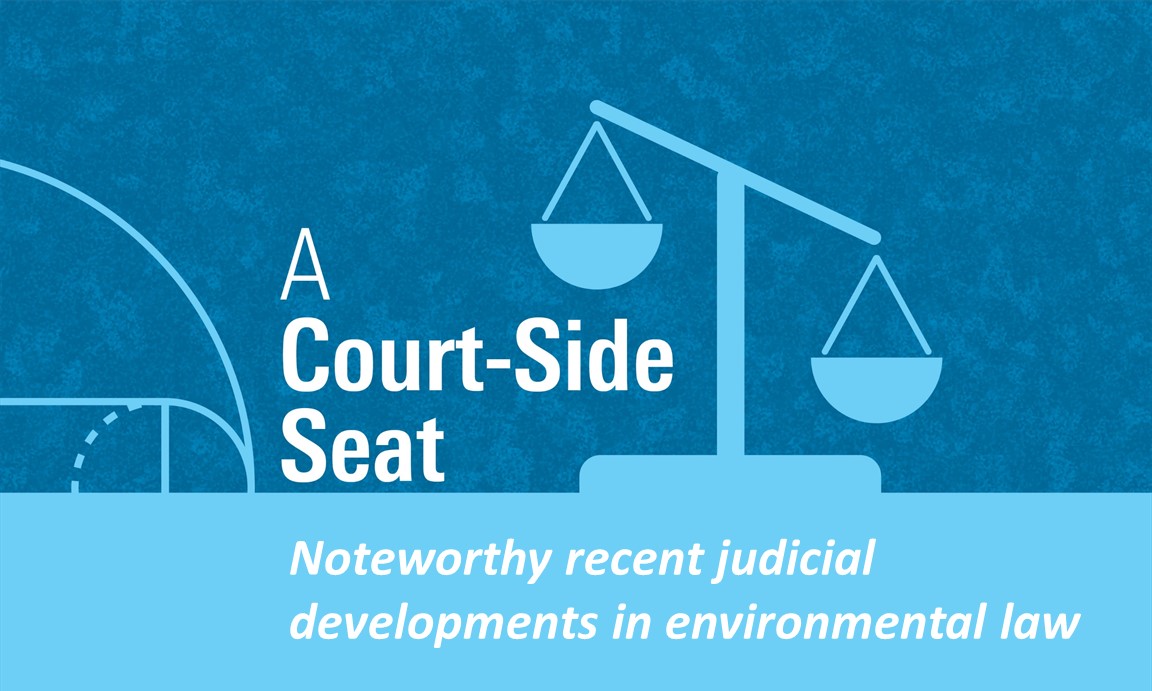Software is critical for countless businesses in the real estate and construction industries. After the Massachusetts Supreme Judicial Court’s recent decision in Oracle, there may be a sales tax refund opportunity for businesses (including real estate, construction companies) that license software for use in Massachusetts and in other states. Read more about the court’s decision here by Zachary T. Atkins and William L. Bennett.
Washington, DC’s COVID-19 Eviction Moratorium Expires
Throughout the COVID-19 pandemic, federal and local governments have adopted varying moratoria on evictions, enacted as emergency legislative protections for tenants facing eviction. The federal moratorium on eviction, promulgated by the Centers for Disease Control and Prevention (CDC), is set to expire on July 31. While the Supreme Court recently left the moratorium in place, the Court signaled that it would likely be held unconstitutional if extended and challenged again. With the sole federal moratorium expiring, state and local protections may remain in effect; however, many of these local orders are also beginning to expire. Washington, DC’s eviction moratorium, one of the most tenant-friendly pieces of emergency legislation in the country, is one such example, beginning a phaseout process that allows the pace of evictions to slowly begin throughout 2021 before a final legislative sunset in February 2022.
Proposed Cyber Incident Notification Act of 2021 and the Real Estate Industry
On July 21, 2021, a group of bipartisan Senators formally introduced the Cyber Incident Notification Act of 2021. This legislation, if passed, would require nearly all federal contractors and subcontractors (at all tiers) to report actual and potential cybersecurity intrusions to the Department of Homeland Security within 24 hours. Unlike previous cybersecurity requirements that have applied only to contractors in certain industries, such as defense or information technology, this legislation is intended to cover contractors throughout the Federal supply chain. Therefore, real estate and construction companies that hold contracts or subcontracts in support of the Federal government would be subject to these new, more onerous reporting requirements. Colleagues Brian E. Finch, Michael R. Rizzo and Meghan D. Doherty discuss the bipartisan legislation in a recent alert.
Presidential Executive Order 14008: The Climate Crisis Order
Property Insurance Considerations for Cannabis Delivery Services
The legal cannabis industry in the U.S. is growing at an unprecedented rate and is projected to reach $73.6 billion by 2027. While federal law still classifies marijuana as a Schedule I drug, many states have legalized both medical and recreational marijuana. As state restrictions ease, new business opportunities continue to emerge. On the Policyholder Pulse blog, colleague Ashley Cowgill provided a thorough exploration of insurance options, including one of particular relevance for readers of G2G:
Property Insurance
Property insurance generally protects a business in the event the business’s property, including, equipment, storage facilities, or signage is damaged or stolen. Property insurance does not, however, typically cover property in transit, or property belonging to another person. Thus, once the product is out for delivery, a property policy will generally not provide coverage if the product is lost or damaged.
For the full list of insurance coverages options that cannabis delivery services may want to consider, click here.
In Review: SCOTUS Environmental and Administrative Decisions in the 2020 Term
Several decisions of interest were issued in the 2020 term, which stretched from October 2020 until early July 2021. This review will concentrate on environmental and administrative law cases.
Supreme Court Declines to Address CDC Eviction Moratorium
In a closely watched 5-4 decision, the U.S. Supreme Court sided against the challengers to the eviction moratorium issued by the Centers for Disease Control and Prevention (CDC), keeping a stay in place that leaves the eviction ban in effect through July 31. The CDC has indicated it will not renew the eviction moratorium when it expires at the end of the month.
The Risks and Rewards of Sustainable Building Design
The shift towards a “greener” environment has resulted in cities and states implementing electrification mandates, which will have a major impact on both current and future building design. Currently, most commercial and residential end users are already all-electric. However, there are some exceptions, such as space and water heating, that use a significant amount of energy. Several states, including California and New York, have cities that have introduced legislation requiring new construction to be all-electric. This means, for example, using electricity for heating rather than fossil fuels such as natural gas. Mandate or not, building owners and developers should consider the risks and rewards of an all-electric design.
A Court-Side Seat: As SCOTUS Decides Another Regulatory “Takings” Case, a Flurry of Action at EPA

This is a brief account of some of the important environmental and administrative law cases recently decided.
THE U.S. SUPREME COURT
Pakdel v. City and County of San Francisco
On June 28, 2021, the Supreme Court decided this regulatory “takings” case, and, in a Per Curium opinion, reversed the Ninth Circuit’s ruling that that petitioners had to exhaust their state administrative remedies before they could file this lawsuit under 42 USC Section 1983. The City government had already come to a sufficient regulatory conclusion, and the Constitution does not require additional processing. In so ruling, the Ninth Circuit ignored last term’s decision in Knick v. Township of Scott.
Connection Corner: Drew DeWalt of Rhumbix
The Real Estate and Construction industry may be huge, but ultimately, as with all industries, it comes down to the people who help make it all come together. From time to time, we like to profile some of those people.

Drew DeWalt is COO of Rhumbix, a construction computer software company he co-founded with CEO Zach Scheel in 2014. A native of Waco, Texas, Drew attended the University of Notre Dame, and upon graduation, was commissioned into the U.S. Navy as a Nuclear Submarine Officer. He spent over six years with the Navy, stationed primarily in Pearl Harbor, Hawaii, and deployed to locations across Southeast Asia.After completing his service, Drew enrolled in Stanford’s Graduate School of Business to pursue a joint MBA/MPP degree program, focusing on energy systems and infrastructure. Shortly after graduating, he started the renewable energy company, Valhalla Energia, in Chile with two classmates. In 2014, Drew stepped back from Valhalla Energia to found Rhumbix with Zach Scheel. Their experiences working on mega infrastructure projects and feeling the pain of having to make important decisions with low-quality, latent and incomplete data led them to identify a need to gather and structure data at the source—from the men and women actually executing in the field on a project. Drew currently lives in Orinda, Calif., with his wife, Whitney, and their four children.





